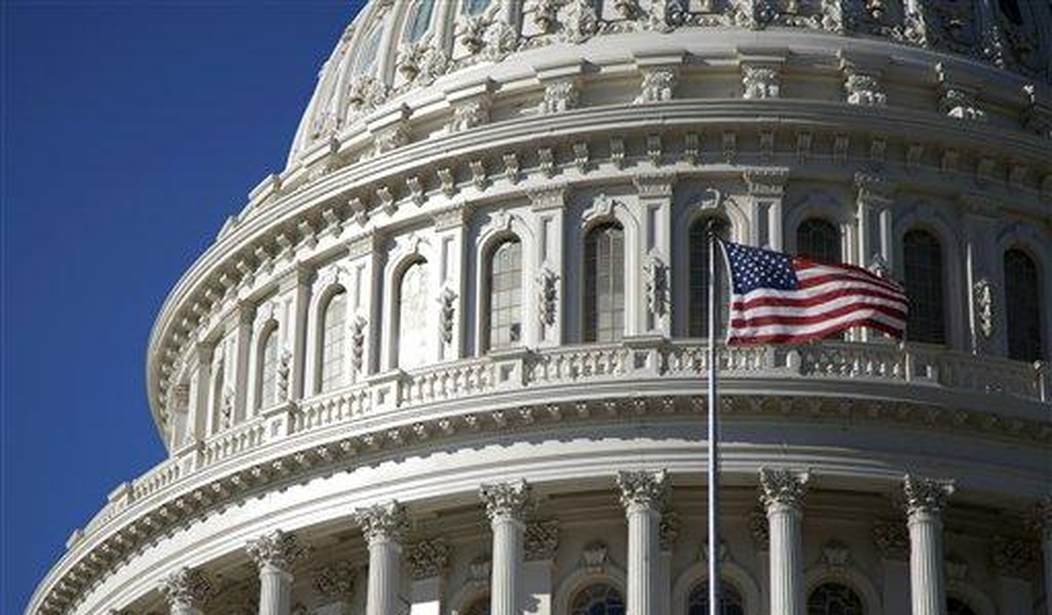After their takeover of the House, Republicans are tasked with deciding whether to ban earmarking. To restore fiscal responsibility, lawmakers must ban this practice.
Earmarks are provisions within large spending bills that direct funds to be spent on specific projects or programs. Funds are often directed towards specific congressional districts, at the request of specific lawmakers. Earmarks are used to buy the votes of congressmen who wouldn’t vote for the overall package without a bribe.
In other words, Democrats use earmarks to bait Republicans into voting for bad legislation
Earmarks also encourage corruption. Just last week, the Washington Free Beacon reported on Senator Raphael Warnock (D-Ga.) steering $16.4 million in earmarks to a project that “benefited the co-owner of his controversial low-income apartment complex.”
Republican House leadership wisely banned earmarks when they won the majority in the House in 2010. Because Democrats reinstated the use of earmarks last year, it would be wise of the GOP to keep with the precedent of banning this practice in the upcoming 118th Congress.
Earmarks are incredibly unpopular. According to the Washington Post, 79 percent of Americans said that earmarks are “not acceptable.” It is imperative that Republicans assert themselves as the alternative to the Left’s wasteful, inflationary spending – especially during a time of economic turmoil.
Notably, Minority Leader Kevin McCarthy (R-Calif.) and House Appropriations ranking member Kay Granger (R-Texas) have not requested earmarks, defying the culture of spending in Washington.
Recommended
Because many lawmakers were not in office pre-2010, while earmarks were increasingly out of control, it has been forgotten what a nightmare they were.
Earmarks take up a significant amount of members’ and their staff’s time. Rather than focusing on the substance of actual legislation, staff time becomes dedicated to inserting earmarks into legislation. Because the asks for project funding are endless, a large portion of the meetings staff must take are with special interests who come with hat-in-hand seeking funding for niche projects.
While many of these projects can appear worthwhile, it is worth noting that those with the requests failed to receive funding from private institutions and local/state governments. Federal funding is usually a last-ditch effort to get a project done after no one was willing to throw their own money or support behind it. Through selection bias, wasteful, erroneous spending plagues the earmarking system.
If the projects are so worthy, why have they failed to gain local support? Why do taxpayers in the rest of the country have to foot the bill?
The most infamous example of an earmark leading to frivolous spending is the “bridge to nowhere.” This project began in 2005 after members of Congress from Alaska requested funding to build the Gravina Island Bridge in exchange for their votes. The bridge was going to connect the town of Ketchikan with a population under 9,000 to the Island of Gravina, an island with an airport and a population of 50. Despite the miniscule number of residents and the availability of a ferry, taxpayers were going to fund the bridge for $320 million. While Congress put an end to this bridge project in 2015, countless other pork projects have been approved.
Over the past year, lawmakers passed numerous absurd pork projects, as highlighted by David Ditch in the Daily Signal: $2 million for the “Great Blacks in Wax” museum in Baltimore, $750,000 for “LGBT and Gender Non-Conforming housing” in Albany, NY, $1.5 million to promote eating outdoors in Pasadena, CA, $5 million for the Universal Hip Hop Museum in New York, and $3.6 million for a Michelle Obama Trail in Georgia.
Earmarks also caused the downfall of members of Congress such as Pennsylvania Representative Chaka Fattah. CBS Philly reported that earmarks had been used to repay part of an “illegal $1 million loan from a wealthy friend to prop up his [Fattah’s] failed 2007 campaign for Philadelphia mayor.” As the Heritage Foundation details, Rep. Bennie Thompson (D-Miss.) came under scrutiny when funding that he secured through a “$900,000 earmark for road construction in his district was used to repave the road where he and his daughter both owned homes.”
In addition to Americans for Tax Reform, several other organizations have come out in support of an earmark ban.
In its FY2023 Budget, the “Blueprint to Save America,” the Republican Study Committee (RSC) took an official position against earmarks, explaining that “earmarks divert taxpayer resources to special interests, grease the wheels of Washington’s spending machine and set a poor example of fiscal responsibility.”
Conservative groups are united in calling for an earmark ban. This week, Citizens Against Government Waste (CAGW) led a coalition letter signed by a long list of conservative organizations urging members to ban earmarking.
This kind of frivolous spending is disrespectful to American taxpayers and is a flagrant violation of Congressional duty to be responsible stewards of taxpayer funds. Republicans must ban the use of earmarks, once again asserting themselves as the party that takes fiscal responsibility seriously.

























Join the conversation as a VIP Member